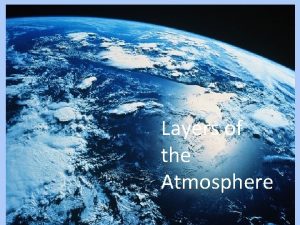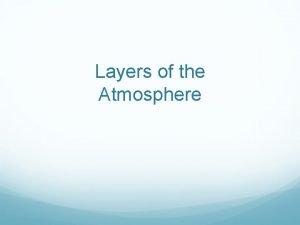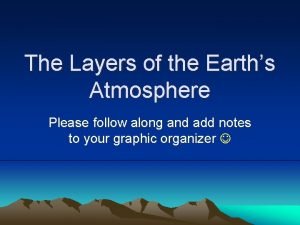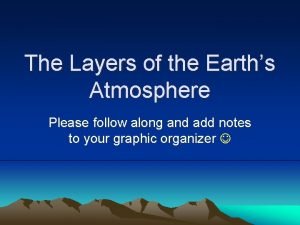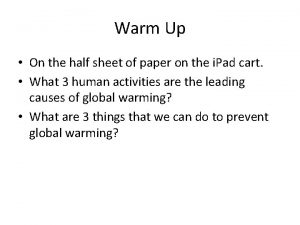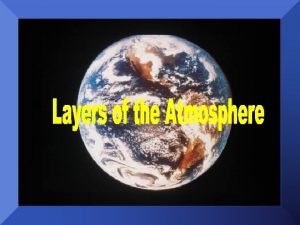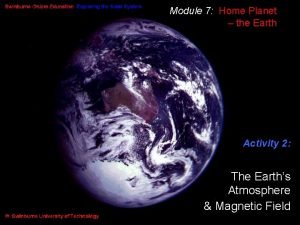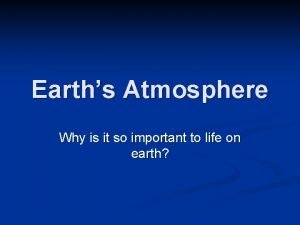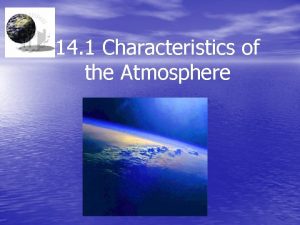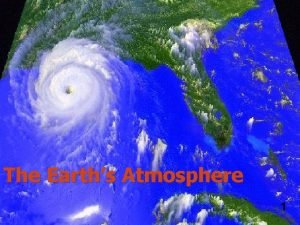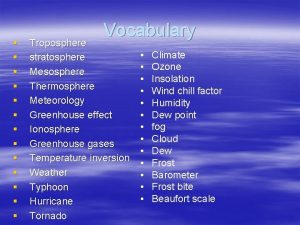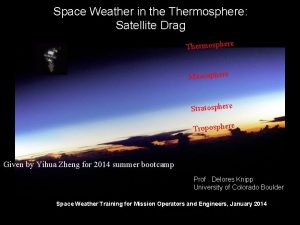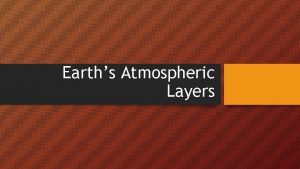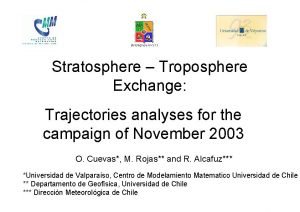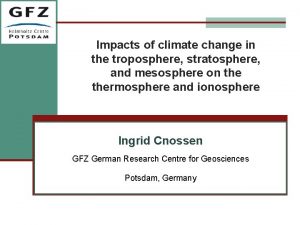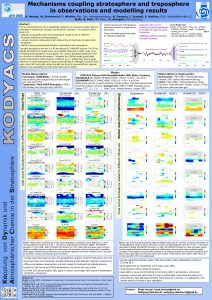ATMOSPHERIC LAYERS 4 LAYERS Troposphere Stratosphere Mesopshere Thermosphere












- Slides: 12

ATMOSPHERIC LAYERS

4 LAYERS • Troposphere • Stratosphere • Mesopshere • Thermosphere

TROPOSPHERE • Lowest layer • Densest layer • Varying temperatures • 90% of atmosphere’s mass • We live in this atmospheric layer

STRATOSPHERE • Gases mix less than troposphere • Air is thin • Contains little moisture/very dry • Lower stratosphere is very cold (-60 degrees C) • Temperature rises as altitude increases b/c the ozone absorbs ultraviolet radiation from the sun and warms the air.

OZONE • This is not one of the atmospheric layers but is a layer within the upper stratosphere • It protects humans from burning up or getting skin cancer • This is what causes the higher temps at higher altitudes in Stratosphere • It is also part of the lower Mesosphere

MESOSPHERE • Lies above stratosphere • Coldest layer (-93 degress C) at the top of the layer • Temperature decreases as altitude increases( like troposphere)

THERMOSPHERE • Uppermost layer • Temperature increases as altitude increases • Nitrogen and Oxygen absorb highenergy solar radiation and releases thermal energy.

THERMOSPHERE • Hottest layer (1000 degrees C or higher). • Does not feel “hot” because although temps are high, the particles have greater spaces between them, so they do not transfer thermal energy. This makes it feel cooler because the particles do not collide and transfer energy • Ionosphere is a layer within thermosphere

IONOSPHERE • Not one of the 4 layers BUT it’s a layer within to layers: mesosphere and thermosphere • Absorbs solar energy • As temps rise, gas particles become electrically charged (ions) • Auroras occur at the polar regions (Northern Lights) • Reflects AM radio waves which bounce off the ionosphere and are sent back to Earth

EXOSPHERE • According to some texts, this is considered the outermost layer • It’s considered “outer space” • Few atmospheric molecules which escape into space • Meteors enter Earth’s atmosphere in the exosphere • Because the exosphere is so hot, meteors burn up before entering other layers

ATMOSPHERIC BOUNDARIES • Tropopause-above the troposphere • Stratopause-above the stratosphere • Mesopause-above mesosphere • Thermopause-above thermosphere • At these pauses, maximum changes between the “spheres” occur

ATMOSPHERIC LAYERS AND VEHICLES THAT GO TO EACH LAYER: This Photo by Unknown Author is licensed under CC BY-SA
